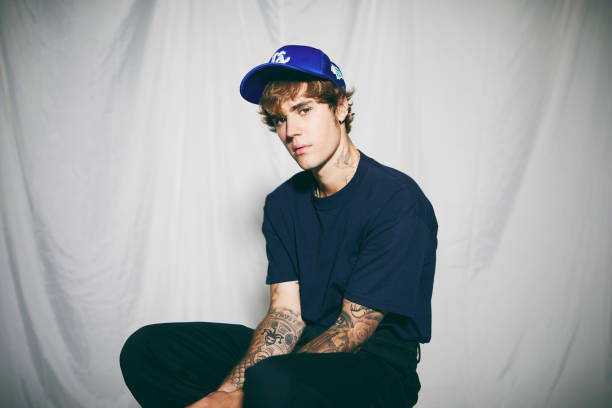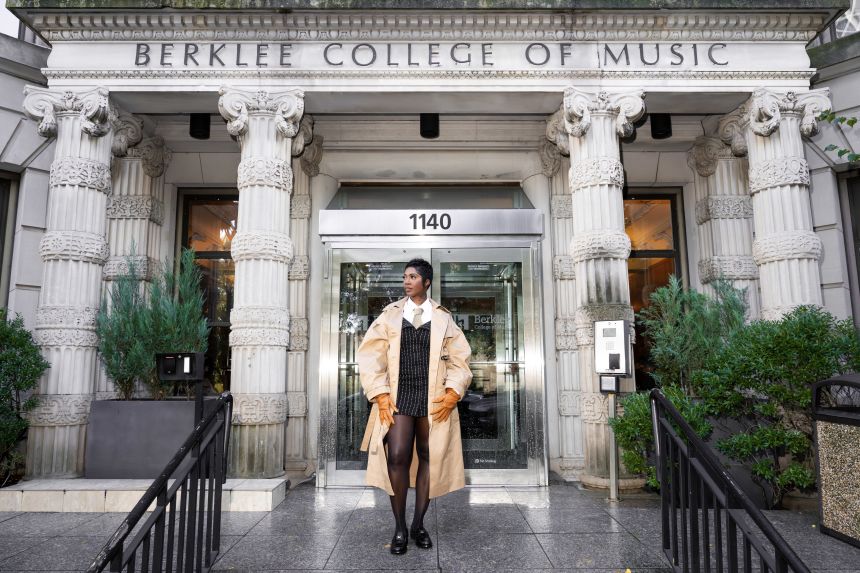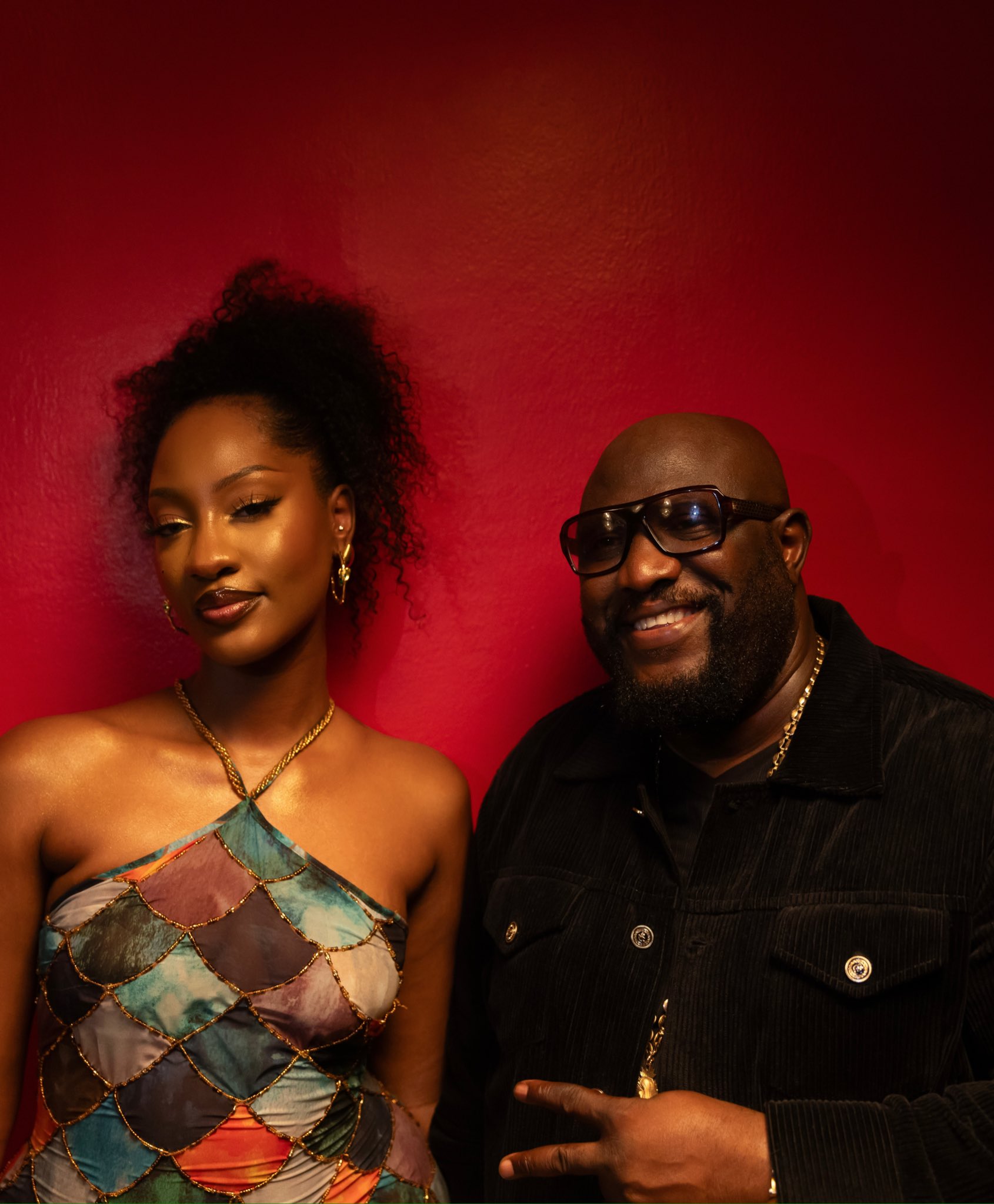Bomi Anifowose

For all his teen-idol beginnings, awkward dreads phase, and occasional tabloid whirlwinds, Justin Bieber is undeniably honing a spot as one of the most influential artist-strategists of our time.
When Justin Bieber surprise dropped his twenty one track album ‘Swag’ on the 11th of July 2025, it wasn’t just a return to music but a return to spirit. It was as if the once-boy wonder had stared into the chaotic abyss of pop culture, filtered it through lo-fi soul, gospel breathwork, R&B textures, and came back with a calm, confident shrug that said: “ Dude, I know who I am now. Do you?”
The thirty-one year old’s ‘Swag’ is less about saggy jeans and more about fluid genius, radical collaboration, and a dismantling of the pedestal most pop stars put themselves on. And if African stars are watching, really watching, there’s a whole syllabus of lessons to glean from the Bieber’s Blueprint. For now, Let’s dive into five.
1. Collaboration Is Not A Crime

There’s a disturbing gatekeeping culture among many African artists. A sense that collaborating with “lesser-known” peers or even giving proper credit dilutes their brand equity. Bieber clearly missed that memo—and thank God.
On ‘Swag’, Bieber works with brilliant minds like Carter Lang (SZA’s go-to sound whisperer), Mk.Gee, Eddie Benjamin, and Dylan Wiggins, not out of pity or politics, but because he respects them. They are his friends. You know how that saying goes; “Real recognizes real”. Ultimately, Bieber isn’t scared to look for inspiration in other people’s brilliance.
African stars, let’s be honest: the refusal to collaborate or publicly uplift peers isn’t self-preservation. It’s self-sabotage. Collaboration isn’t a loss of prestige but a pooling of genius. It’s the only way to build a sustainable ecosystem.
2. Direct-to-Fan is a Gold mine
— Justin Bieber (@justinbieber) July 19, 2025
Gone are the days when label execs decided what hit the streets. Bieber’s freewheeling engagement with fans since the release of the album- reposting fan covers, sharing dance trends created by fans off hits from the twenty one track album, has created an intimate loop that even Spotify algorithms can’t replicate. One could almost say Justin Bieber is influencing the trajectory at which his market takes off. No influencer needed.
Deliberate Marketing strategy or not, it is the stuff of genius. By interracting with fans on a surface level that is devoid of the need to stick to unrealistic aesthethics, Bieber is only attracting more traction to his music, as hopeful fans all over the world will see this as an opportunity to connect without borders.
The upside to this approach for Bieber is that he gets more streams and brand likability ( like he wasn’t already loved enough… lol). While the upside to fans is that they get the luxury of being publicly endorsed by Bieber himself. A win-win situation if you asked this writer.
African artists must recognize that fans are not just followers but co-pilots. Give them voice. Build the bridge. A feed repost can be more powerful than a radio plug. Speak with them, steer alongside em.
3. Turn Controversy in Your Favor
— Justin Bieber (@justinbieber) July 19, 2025
Just weeks before dropping Swag, Bieber was videotaped in a paparazzi spat outside a restaurant in West Hollywood. The video, which captured him snapping back at an intrusive paparazzi with the now-viral phrase, “Is it not clocking to you that I’m standing on business,” spread like wildfire—TikToks, memes, reels, thinkpieces- just freaking name it.
What did Bieber do? He ran with it. That infamous one-liner didn’t become a PR liability, but an interlude on the album. Titled “Standing on Business” and featuring comedian Druski, the skit reclaims the moment with humor and self-awareness. It disarms the scandal and turns it into sonic seasoning. Also, and maybe even particularly, Bieber’s seemingly non-chalant reposts of fan made memes gave further momentum to his brand.
This is a masterclass in rollout alchemy: taking public chaos and weaving it into creative control.
Justin Bieber made sure he gained everyone's attention before releasing that album.. Man is in good mental health status all this while. Good pr, good music, good result, happy ending. pic.twitter.com/ItM8o1vZ22
— Theway1714 (@theway1714) July 13, 2025
African music stars, take note. Not every controversy needs an impulsive response, outlandish on-air remarks that shows lack of media training, or a silent retreat. Sometimes, if you lean into the moment with clarity and cheek, you can own the conversation.
4. You’re Not Too Cool to Niche Pivot
This new Justin Bieber album is gas, probably my favorite album of his to date
— Joey (@gothamhiphop) July 13, 2025
Love the mix of genres on this one it feels fresh 🤌🏼 pic.twitter.com/iGCIM4UeLp
Swag is not a “safe” pop album. It’s weird. It’s genre-fluid. It’s part gospel-funk, part soul-folk, part bedroom-pop, part what-the-hell-is-this-but-I-love-it. It glitches. It wanders. It flows like someone who’s more interested in expressing their truth than chasing chart algorithms. There’s no obvious “TikTok hit.” There’s no single engineered for radio. It’s not designed for playlists—it’s designed for transcendence.
Now zoom out and look at the African soundscape. Too often, we’re stuck in an innovation drought masked as commercial consistency. You know the drill: Amapiano drop at the bridge, a love interest named Folake in the second verse, and call it a project.
But real evolution? Real artistry? That comes from daring to get uncomfortable.
Artists like Cruel Santino and Amaarae have shown us what happens when you say “screw the formula” and create from impulse, not instruction. Even TEMS, who broke in with cinematic soul, didn’t pivot to trends—she doubled down on her sound and carved a genre around it.
Swag is a reminder that the world doesn’t need another reheated chart recipe. It needs something new to feel.
5. Vulnerability is a Brand Strategy ( Only if it’s real)
The way Justin Bieber appreciates Hailey's love and admits his vulnerability in his new album >>>
— Priscy Koko 💕 (@thepriscyy) April 18, 2021
On Swag, Justin Bieber bleeds not with spectacle, but with sincerity. On “Therapy Session”, he confronts the anxiety of online existence. On “Walking Away”, he admits the messy middle of marriage, not just the pretty parts. Interludes like “Glory Voice Memo” and “Zuma House” dissolve the line between studio polish and human pulse. It’s not a cry for pity but authenticity. A reminder that emotional transparency, when done with care, can become a form of musical transcendence.
To be fair, African stars aren’t strangers to this kind of depth. Ayra Starr, On her album The Year I Turned 21, goes a bit further by grappling with grief, family, identity, and girlhood with startling openness. “The Kids Are Alright” opens with voice notes and ends like a diary entry. Stars like Rema, too, has laced vulnerability into his work. “Divine” collapses his origin story into a gospel-like opener. “Holiday” recalled pain and hunger, while “Runaway” is a hushed vow of love, not meant for radio spins but real hearts.
However, what Bieber does differently is structural: the vulnerability isn’t just in what he says, but in how the entire album is designed. From the interludes to the production to the pacing, Swag feels like a sonic journal—disjointed at times, but purposefully so. And that’s the lesson: African artists are already telling their truths. But there’s still room to experiment with form, to allow silence, imperfection, and chaos to enter the work. Vulnerability isn’t a trend; it’s the new language of authenticity and the real ones can hear it.




